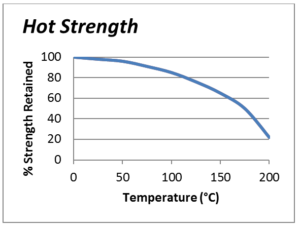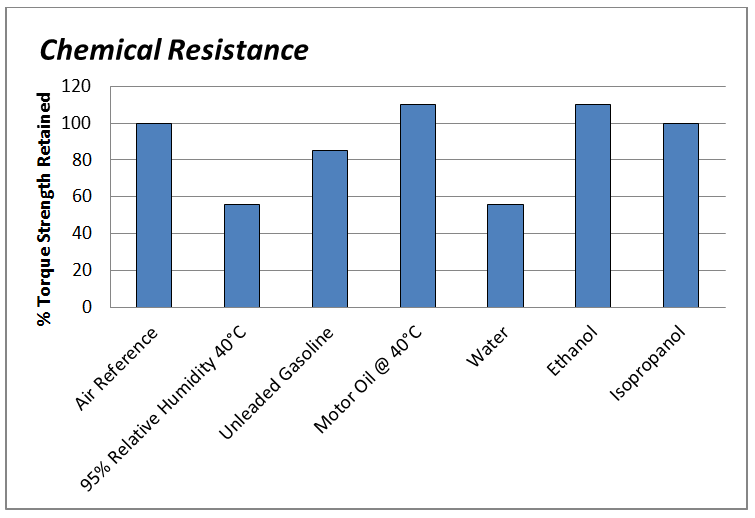When it comes to epoxy environmental resistance, One Part Epoxies are some of the most environmentally resistant adhesives. The adhesive bonds resist a variety of chemicals as well as high temperature conditions. One component epoxy adhesives provide high shear, peel, and impact strength, with excellent adhesion to metals and other substrates. They are often used to replace welding in structural applications. Some products are designed to flow as they are heated during the cure process to fill the bond area – other grades will remain in place without flowing (non-sag epoxies).
A typical cure schedule for single component epoxies is:
130°C (266°F) 75 min
150°C (300°F) 60 min
170°C (338°F) 40 min
Cure schedules for individual products are listed on the technical data sheet. Specialty products are available with lower temperature cure thresholds for bonding heat vulnerable parts.
More information on curing single component epoxies can be found here https://www.permabond.com/blog/2014/10/14/consistent-single-component-epoxy-curing/
Single component epoxies can also be cured by induction curing… see https://www.permabond.com/blog/2014/12/02/induction-curing-epoxy-adhesives/
One component epoxies cure with heat. Most are fairly rigid with Shore Hardness of D80-D85 and typically retain 40% of their strength at 180°C (355°F). They will resist higher temperatures for limited time, providing there is not high stress on the joint, for example, during wave soldering or paint baking. When compared to room temperature epoxies, single component epoxies resist double the temperature. The maximum temperature resistance of regular two component room temperature cured epoxies is 80 to 100°C.
“Hot strength” shear strength tests performed on mild steel. Fully cured, then conditioned to pull temperature for 30 minutes before testing.

Single component epoxies are very resistant to a variety of chemicals. They are often selected for the high durability under extreme conditions. The chart below percent strength retention of typical single component epoxies when exposed to various chemicals for 30 days at 85°C (185°F).
